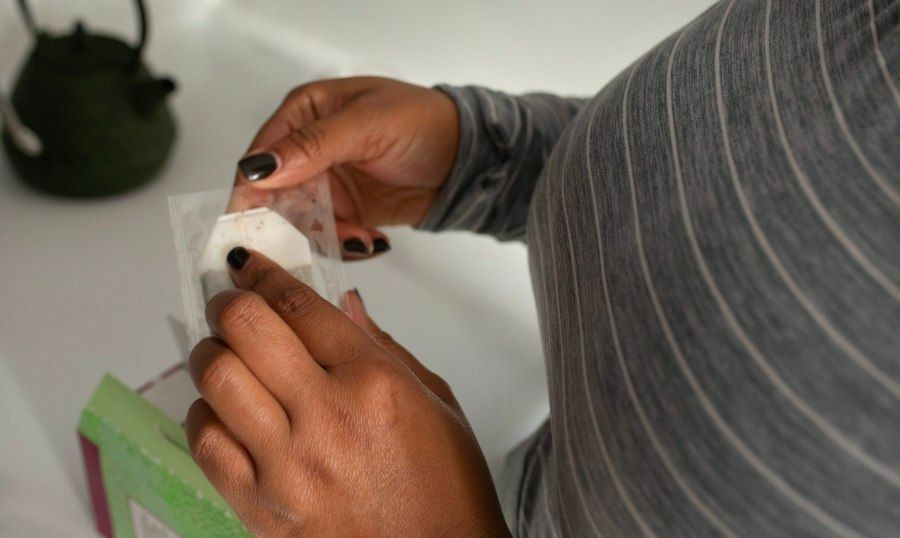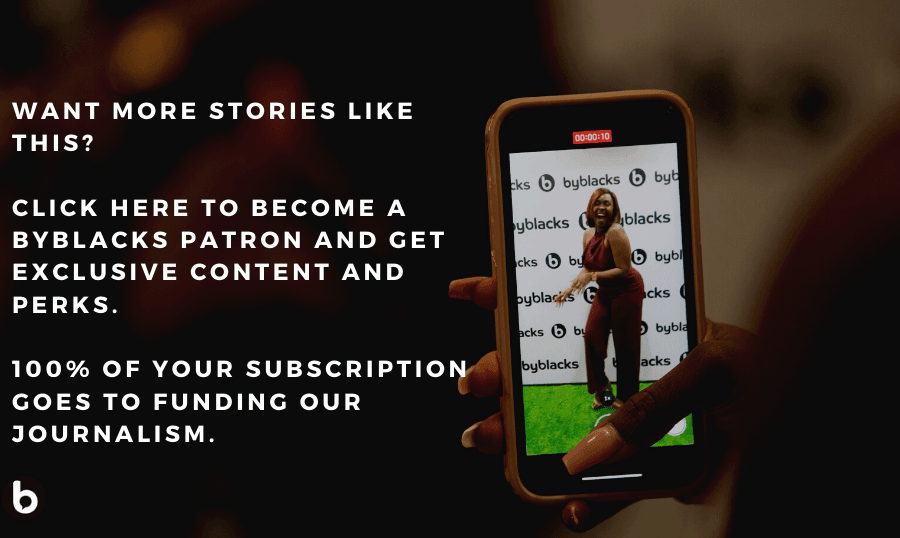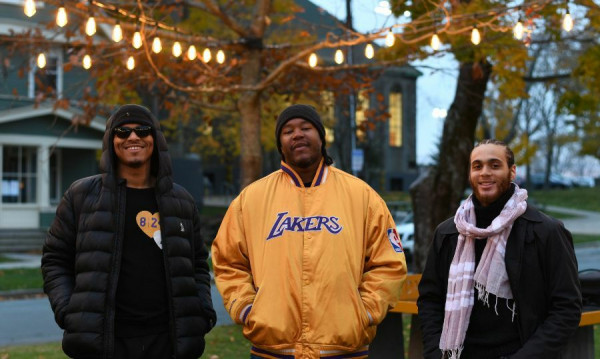Since the legalization of the cannabis industry, everyone from the heads of law enforcement organizations to the “Big Five” banks have planted their flags in this estimated multi-billion dollar industry. A large piece of the pie has been carved up by White hands over the bodies of Black entrepreneurs murdered or imprisoned prior to the legalization of cannabis, with the major irony being, many of those who built the industry will never have the resources to get a legal slice of the cannabis pie.
There are however, Black business folks who have refused to sit idle and wait for crumbs to fall from the table. ByBlacks sat down with 3 Black entrepreneurs in the cannabis/hemp industry to find out how they are succeeding.
Who are you, what does your company or organization do, and what is your role?
Akeem Gardner: I’m the co-founder and CEO of Atlas 365. We’re on a mission to transform and create climate-resilient communities with industrial hemp and modern-day technology. It’s been said that industrial hemp can be produced to create over 50,000 things. I would say, that’s 50,000 things before you add modern technology to it. We grow hemp and work with farmers in Ontario to bring forward the hemp supply chain while creating novel innovations with this amazing plant.
Jennifer Thomas: I’m a co-founder of Province Brands of Canada, and also recently transitioning into the role of CEO at our company. We’re a beverage technology company primarily operating in the cannabis industry, but we also make beverages for the traditional alcohol beverage space. As a technology company we also work to create functional beverages. We’re launching our first products into the market late this year and we take a sustainable approach to the cannabis and hemp plant. We’ve noticed there’s a lot of waste in the cannabis industry. They say for about every 4 tonnes grown, only one tonne is used and the rest is discarded. We take the leftover plant material and find new uses for it like beer and sugar extracts. We believe our technology has cross-market applications. If you’re a cannabis company that has leftover material and you want to take a sustainable approach to making a beverage or sugar from it, our technology can be licensed for that purpose.
Andre Watson: I’m the founder of the African Canadian Cannabis Society. We started in 2017 because we saw the lack of representation in the field. I was going to seminars and markets where we were the consumers but not the people reaping the benefits. We also educated the community on cannabis stocks and what was really happening in the industry. In addition, we included very hands-on seminars around brand creation, edible creation, medical cannabis consulting, and grow classes. The ACCS is invested in killing the stigma in the community after years of being on the bad end of the stick when it comes to the Black community and cannabis. We want to get our people to understand there’s a huge amount of money to be made in the cannabis industry and it’s imperative for the Black community to be involved.
What was your motivation for launching your respective businesses?
Jennifer Thomas: Not to be a broken record, but sustainability is a big part of the inspiration behind our brand. Second, we see beverages in the cannabis space as a really interesting alternative to traditional cannabis. We’ve noticed that smoking in general, whether you’re talking about cigarettes or rolled joints, is frowned upon in the larger community. As people have become more concerned about smoking or vaping, it’s now harder to have a lot of social consumption of cannabis in public spaces. We feel strongly that cannabis beverages bridge that gap. Beverages can be consumed in a more social way. Most adults don’t get together and just eat a bag of gummies. It’s a fun way to intoxicate and we don’t look down on edibles at all, but there should be other ways for people to imbibe and enjoy cannabis in more traditional social or celebratory settings.
Akeem Gardner: Around 2013 my best friend and co-founder, Randy Osei, co-founded a management company with Anthony Bennet (1st Canadian NBA draft pick). Randy’s been working in the industry a number of years trying to compete with our U.S. counterparts in the world of sports, entertainment, branding, and influencer marketing. I went to law school in the UK in 2015 with the intention of getting involved with law and sports. When I came back to Canada in 2017, after cannabis had become legal here, there was a cannabis rush. I realized Randy and I had an opportunity to use our relationships with influencers in a legal way, which is advantageous to our U.S. counterparts. Randy surmised that since cannabis wasn’t federally legal in the States, the NBA would never allow it to happen under his company (Rozaay Management), so we founded Atlas 365 to explore the opportunity ourselves. As we learned about the industry, our vision evolved from just getting endorsement deals, to building our own brand with our relationships. We didn’t have enough money for cannabis, so we decided to do something with hemp. As a law student, I was able to better understand the differences between the Cannabis Act and the Industrial Hemp Act; hemp has been legal in Canada since 1998 and Canada is the 3rd largest global exporter of hemp. So we leased some land and I jumped into learning how to grow hemp.
What was the importance of founding a society to advocate for the fair representation of African Canadians in the Cannabis industry? What does fair representation look like to you?
Andre Watson: Being actually represented in the space would be a good start. We are the number one consumers, marketers and advertisers when it comes to cannabis culture, but we reap no economic benefits. In 2016 there was a huge dispensary boom. When I would shop at a dispensary, I’d see 30 people in line who looked like me, but nobody who looked like me on the sales end. I realized there was tons of money to be made, but we weren’t making it. Yet, out on the street, we were the ones being harassed and arrested for it. As full legalization approached in 2017, I started this group to raise awareness and educate in order to kill the stigma associated with our community. We’ve seen cannabis for too long as a bad thing, whether because of religion, or negative stereotypes leading to negative experiences associated with the plant. We want people to know there are many good uses for the plant, whether you’re talking about the THC or CBD aspects. When it comes to monetization, aside from growing and creating brands, there’s a whole other industry around cannabis; lighting, nutrients, fertilizers etc. We just really need to get our foot in the door.
Statistically speaking, and prior to legalization, Black and Indigenous communities were disproportionately represented in cannabis related arrests in Canada as a result of over policing; as well tactics later deemed unconstitutional like carding. In light of those statistics, what are your personal opinions of the usage of Black celebrity culture and Black culture to sell cannabis products?
Jennifer Thomas: It’s no surprise that Black celebrity culture and Black culture would have so much synergy with the cannabis industry because much of Black culture leads a lot of cannabis culture in general. I think it’s important to make sure that voices from all different sides are pushing the narrative, so one Black celebrity doesn’t become the gold standard for inclusivity and diversity. The usage of Black celebrity culture as part of a branding mechanism for cannabis or the hemp industry is not enough. It’s valuable, because it adds diversity in some way, but it’s still not enough; that’s just the start of where things can go. It’s important that people in positions of power in the industry have that diversity in every level of their company. If you're going to use Black culture as your inspiration, it should be more than surface level in its depth and penetration into your company, mission, brand, and ethos. Something else I think makes a difference is making sure that more companies are led by people of colour, and not just in hiring, but also partnering with Black celebrities in a way that isn’t exploitative.
Andre Watson: It’s no surprise to me that the industry uses us to push their business. Peter Tosh said a long time ago, “legalize it and I’ll advertise it.” I think it’s cool, but we need to not wait on that. Snoop Dogg is advertising with Canopy Growth but there’s a lot more he could be doing when it comes to Black people and cannabis. We need to be able to control our own narrative and advertise it the way we want to, with the right messages to the right people.
Jennifer Thomas: I feel like this leads to the larger point of these companies having the backing to secure these kinds of partnerships. It’s hard to even make these statements or have these kinds of partnerships without the proper funding or backing.
Akeem Gardner: I agree with much of what both Jennifer and Andre have said. In my first year of business, I realized we have a lot of power that other people want to exploit. I was trying to get one of these other cannabis companies the same sort of celebrity deal that Canopy Growth had with Snoop Dogg. At that point, I was just trying to make that deal happen. It clicked for me that if we can create the product, we can make those relationships for ourselves. Sometimes when you come from a background of not having a lot of wealth, you fall into the belief that the only way you can build something is by helping one of these other companies. However, as long as you put good products on the market, there are ways to control these relationships that are not always about the money. What I’m learning is that if we stick together and remain resilient, these opportunities will open up for us.
Aside from capital, What are some of the barriers to entry into the industry as a whole, and what are the specific barriers for Black entrepreneurs to overcome?
Akeem Gardner: Aside from capital, I’d say just overall support. Early on in my journey, I didn’t have a lot of direction or structure in terms of running a business. So one of the things I tried to do was reach out to people in places I thought would help me. What I learned from that was, nobody was going to give me the answers. Something I found very interesting is when I sought support, it was people of other backgrounds and ethnicities that pointed me in the right direction. My thinking was I was creating the company for us to create jobs and opportunities for the Black community. So why aren’t people from my community helping me? Now I realize that might have been because there weren’t enough Black mentors in the industry with the resources to dedicate time to help me. However, as a people we’re resilient. We just have to realize these opportunities are out there, and if we put in the work, good things will follow.
Jennifer Thomas: Occasionally, when you’re in a room full of people who don’t look like you or aren’t the same gender as you, you may feel like an outsider; it’s difficult to find your voice. A lot of times, I’ll have a good idea or a nuanced counterpoint that might be a good addition to the conversation, and I often have to think about how to say something in a way that adds value, while not tripping over any of the politics of offending people or coming off as impolite. There’s all these other things that you’re constantly navigating while you’re trying to do your job. A big part of this for me, as I grow in this industry and as a professional, is that I don’t mute myself in anyway. Sometimes it’s hard to find that boldness when you’re in an uncomfortable environment. It’s something I find myself doing every day, because in every meeting where I’m trying to raise capital, I’m with a new set of people and I have to find my voice. I often get the impression that maybe other people who don’t have that feeling of being on the outside don’t have to think about that when they’re doing their everyday thing. You need the confidence to know that what you’re saying is correct, you have something good to add to the conversation, and that your voice will have value in this space.
Right. You’re not just a Black person and a Black woman. So you have 2 things working against you so to speak. I imagine the industry to be something of a “bro culture” kind of industry.
Jennifer Thomas: Yes, sometimes. I have to navigate whether something is about my gender or my appearance as a person of colour. Ultimately though, we’re still all in the same boat.
Akeem Gardner: I was at an event in Florida and everyone in that room, with the exception of myself and Randy (Co-founder), was White. We were asked to invite a professional athlete involved in cannabis and I believe that was the only reason we got in the room. It made me think that there’s not enough places for us to network because I’d have never met Jennifer or Andre if not for this meeting. If there were more places for people like us to feel comfortable networking with each other we could’ve already known each other going into this. So I’m thankful for this opportunity.
Jennifer Thomas: I can’t support that enough. I find that because of there being so few of us in the industry, there’s a lot of camaraderie. If I see someone, I’ll make a beeline right to that person.
Andre Watson: There’s very little access as a young Black man trying to get into the cannabis industry. Trying to overcome the stigma of that from your own people and others is huge. What are you really doing? Why are you doing this? Getting people onboard was the toughest thing, but once I found likeminded people who were thinking the same way I was, it was great. I was meeting Black people who are craft growers, cannabis chefs and branding experts. One of the things we do is help our folks get subscriptions to possess or grow their own cannabis. Finding Black doctors that actually want to prescribe cannabis isn’t easy. Most don’t want to do it because it’s a patient loss. If you’re prescribing cannabis to someone, they can now potentially grow their own medicine so...sayonara. I didn’t really understand that at first, but I eventually realized the reason why. As Akeem and Jennifer were saying, when I find another Black person at a seminar or market, I have to exchange socials and stay connected. I also agree that we’re really lacking our own cannabis space, where we can connect with each other all the time. If we had something like that to start with, I believe all three of us would be further ahead because we would’ve met a long time ago and merged our networks to get bigger.
One of the major effects of the #BlackLivesMatter movement has been an exposure of the lack of inclusion to be found at the decision making levels of organizations, ranging from media to the arts. Do you think there’s been a similar sort of “day of reckoning” in the cannabis industry? If not, why do you think that is? Do you think there ever will be, and what do you imagine that to look like?
Andre Watson: I don’t see a change. I think this is sort of like Big Tech. I don’t think they really want us to be a part of this. Look at Jamaica. Jamaica should be the world leader in cannabis based on what it’s always been. Jamaica has been taken over by big corporations when it comes to small farming so it’s obvious they don’t really want us controlling cannabis. I don’t think the Black Lives Matter has really changed the cannabis industry as far as inclusion on a corporate level. We really just have to create our own space.
Akeem Gardner: I agree there may not be an immediate impact, but I think change is happening. The movement is shedding light on imbalances and inequalities that have existed, while giving companies and institutions the opportunity to fix those things. I believe we're creating the change right now. As we stay resilient, build, network, and brainstorm ways to create impact, we have the opportunity to create future opportunities for the next generation so they don’t have to go through what we’re going through now.
Jennifer Thomas: I expect the arc of change to be rather slow in general. I guess that’s a bit of my legal background coming into this. In the law there’s always precedents and it takes a lot to change those precedents. I’m sensing some positive movement but to be honest, I think expecting a movement from the top down is a little optimistic. Where I think there’s positive movement is the customer base. I think customers want to spend their money in places where they know they’re supporting good causes. That ranges from sustainability, supporting small businesses, supporting women-led businesses, to supporting businesses of colour. A lot of the stores in my neighbourhood will have sections in the store labelled as woman or minority owned businesses, so customers can have a choice of how they spend their dollars to support causes and people that are important and empowering the groups they care about. I think that while shifts in corporate America take a while, the push we’re seeing against companies today is being driven by the consumer.
Aside from your personal existence, what are you doing to ensure your companies become more inclusive towards Black people on all levels?
Andre Watson: Well, I can say we have over 1300 members and they’re all Black. Our membership actually requires that you must be Black to join. We work with anyone else, but we’ve made a mandate that we must help our folks first when it comes to the cannabis space. We really wanted to educate our people with regards to everything they can and can’t do with cannabis because, even though it’s legal, we know our people will be scrutinized more than anyone else.
Jennifer Thomas: I’m constantly trying to ensure that I’m being a good steward of the power and responsibility that I have in my own company. In hiring I’m trying to make sure that women and people of colour are getting opportunities and mentorship within the company. We’re a small team, and though I want to make an impact hiring 1 or 2 people only impacts those people. Sometimes I have to take a more holistic approach and call our HR person to ask about whether we’ve inadvertently given a higher salary to other people because the women at our company aren’t negotiating pay raises at the same frequency. When I read articles on the subtlety of how pay gaps can happen, I want to make sure that isn’t happening at my company. Same goes for marketing. One day I looked at some marketing and had to say, wait a minute, these images don’t really reflect the world around us. Internally, that’s what I try to do on an everyday basis. I can’t say I win every fight but I think it’s about being willing to have the fight. I think every time you raise the issue, even if you lose the argument, the next time someone approaches you they’re going to think harder about sending you marketing with not one person of colour in it. I was raised in Atlanta, Georgia, and they’ve just recently rolled out a medical cannabis program. So another thing I’ve done is gone down to the state bar and asked to help start up an association for lawyers. I’m trying to get lawyers of colour to join and be on the forefront of change in that state.
Akeem Gardner: I like running my company looking like I do. I’m 6 foot 5, Black, and after I put on my hoodie and track pants to work on the hemp farm, I’ll head over to the bank in the same attire. I’ve found myself in situations where I’ve faced prejudice based on how I look, but I know what I’m doing and I’m going to run my company my way. I think what that’s led to is having people on our team who will call things out and keep everyone honest. Right now we’re going through a rebranding and my designer is creating stock photos for us. The people on my team always call him out on the lack of inclusivity in the images. The designer then says it’s hard to find inclusive pictures on the internet, but he’ll try. We force ourselves to do the right thing even if it’s difficult. These are the things I notice that make me proud and show that we can make a difference.
Any final things to share about what the public can look forward to from your organizations in the near future?
Akeem Gardner: We’ve realized that our hemp supply chain and our approach to it before was a little out of our reach as a result of not having enough capital. So we’ve had to refocus and readjust. We’re also in the middle of a COVID-19 pivot, where we’re looking at some novel ingredients in the hemp plant and we’re looking to bring some products to market in the next 6 months to a year. We took what had started as a research project and engaged a Canadian university to help advance it a step further, through a pending agreement to process a novel ingredient in the hemp plant into a natural food product. So in relation to Jennifer and Province Brands, the beverage, natural food and health products arena, are some of the things we are looking at that we think are really exciting. Our new brand should be arriving over the next few months.
Jennifer Thomas: We’re raising capital right now while working simultaneously to launch beverages into the market. COVID-19 slowed down our plans. We were building out a facility and were ready to start launching our products before it kind of all ground to a halt. We’ve also had to rethink our strategy and I think some positive things have come from that. One of the main things I’m most excited about is we will have products out in the market, with a September/October target launch of our first products. It’s also an exciting time to be raising capital. It’s a challenge, but it gives us an opportunity to show that we’re here for the long haul.
Andre Watson: Before COVID we had a bunch of events planned. Obviously all that got put on hold, but what was great was a lot more of our people got their cannabis grow licenses because I guess everyone was at home and had time to try something new. We now have a CBD online store that’s going well, and have 3 events lined up; 2 cannabis markets and a cannabis fitness event. So there’s a few things coming up in the near future and we continue to grow our membership.
Byron Armstrong is a writer living in Toronto, Canada who has been published online and in print, for both local and national publications. He writes short and long-form essays, reviews, in-depth profiles, and interviews. His writing focuses on the intersection between art, society, and politics. A link to all his published work can be found on his website: byron-armstrong.com.

 By
By 







